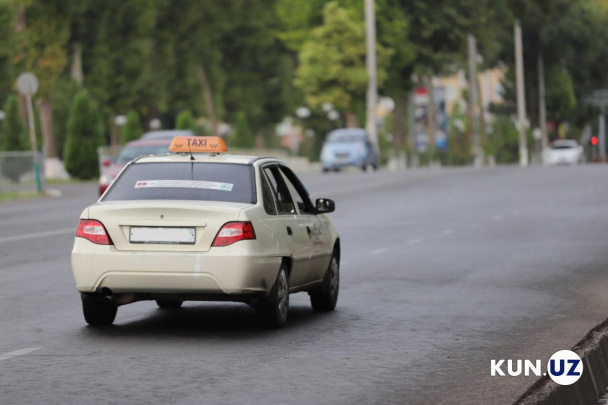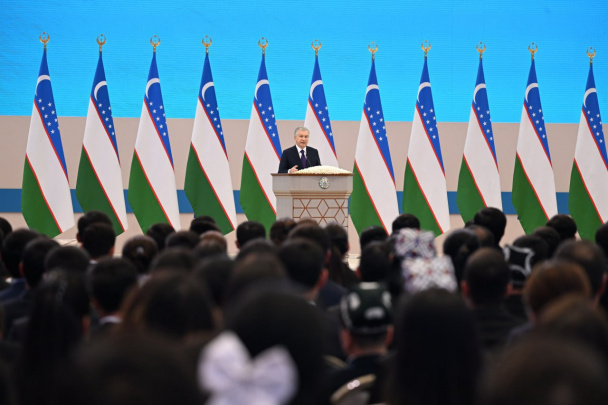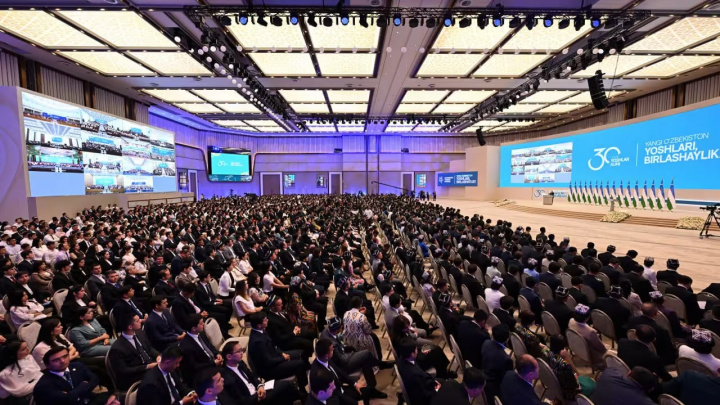Ministry of Higher Education denies alleged informal “taxation” on private universities
The issue of requiring non-state universities to transfer 4% of tuition revenues to the Higher Education Development Fund has resurfaced, sparking controversy. Economist Yuliy Yusupov reported that during a meeting with private university rectors, they were asked to transfer the specified percentage of tuition income and were presented with agreements to sign. Yusupov added that rectors were warned that "neither the public nor lawmakers can help in this situation." However, in response to a query by Kun.uz, the Ministry of Higher Education denied distributing such agreements to private universities.
The alleged demand has drawn condemnation from public figures, who have criticized its legality. A similar demand was made in December, prompting public attention and a parliamentary inquiry by MP Dilmurod Ortikov, directed at the Minister of Higher Education and the Prosecutor General. The repeated occurrence of this issue has sparked further criticism on social media, with economist Otabek Bakirov remarking that the authorities appear to be operating with an attitude of “let's wait until the public forgets, and we'll proceed as planned.”
“When entrepreneurs opening universities recently mentioned these so-called voluntary-compulsory agreements, I honestly didn’t believe them. Threats such as revoking licenses or launching inspections to fabricate violations have been reported. This feels like a throwback to the Uzbekistan of 2015, with blatant disregard for the law. Those who refuse to ‘voluntarily sign’ the agreement and pay the 4% might even face enforcement actions from masked law enforcement agents,” he said.
Bektash Khatamov, the founder of Profi University, stated that he spoke to university leaders who denied receiving any agreements but added that if true, the situation is reminiscent of the 1990s.
“Are you trying to impose a 'tax'? In your terms, this is called a ‘cut.’ What happens if this ‘cut’ isn’t paid? Are you going to eliminate us? Are we returning to the 1990s? If we call it an agreement, and this legally worthless agreement is not fulfilled, what will you do? If you have control over the heavens, then drop them on us now, so we can perish right here,” Khatamov wrote.
Journalist Mukhrim Azamkhujayev also expressed his disapproval, stating that the "taxation" of private universities constitutes a restriction of freedom.
“Bypassing the Constitution, the president, and parliament, a ‘tax’ is being imposed on private universities. There’s no need to even mention the years-long de facto ban on opening new private universities. Against the backdrop of all these irregularities, Uzbekistan in 2018–2019 now seems like a golden era of freedom that even America hadn’t experienced,” Azamkhujayev wrote.
Economist Behzod Khoshimov stated that from the perspective of state governance, institutional restraint, and legal order, the informal taxation of private universities is a critical issue.
“Of course, the negative impact on millions of students’ education and the education industry is unfortunate and needs to be addressed. However, what seems more serious to me is that mandatory payments, essentially taxes, are being imposed on organizations without legal authorization—neither through the Legislative Chamber, nor through the adoption of laws or the Tax Code, but via meeting protocols. This raises serious concerns,” Khoshimov said.
Kun.uz reached out to the Ministry of Higher Education, Science, and Innovation to verify Yuliy Yusupov's claims. A ministry representative stated that no agreements had been distributed to any university and reiterated that decisions by the Council of Higher Education have no legal force.
It is worth noting that in a December 27 statement, the ministry emphasized that the decisions of the Republic’s Council of Higher Education have no mandatory force, as the council is a non-governmental, non-profit organization.
Recommended
List of streets and intersections being repaired in Tashkent published
SOCIETY | 19:12 / 16.05.2024
Uzbekistan's flag flies high on Oceania's tallest volcano
SOCIETY | 17:54 / 15.05.2024
New tariffs to be introduced in Tashkent public transport
SOCIETY | 14:55 / 05.05.2023
Onix and Tracker cars withdrawn from sale
BUSINESS | 10:20 / 05.05.2023
Latest news
-
Uzbekistan tops medal table at Asian Cadet Judo Cup in Kazakhstan
SPORT | 18:42
-
Uncertainty grows as new homes remain without gas supply
SOCIETY | 17:46
-
Uzbekistan plans to launch national ferry service in Caspian Sea
SOCIETY | 16:03
-
Dozens of violations, zero accountability: Fergana police cancel fines for chief’s wife’s car
SOCIETY | 16:02
Related News

12:24 / 03.07.2025
Government tightens rules on private university licensing

17:34 / 02.07.2025
Gov’t introduces automatic tax withholding for high-income self-employed drivers and couriers

16:36 / 30.06.2025
Uzbekistan approves new program to employ high school graduates who don’t enroll in university

15:20 / 30.06.2025



